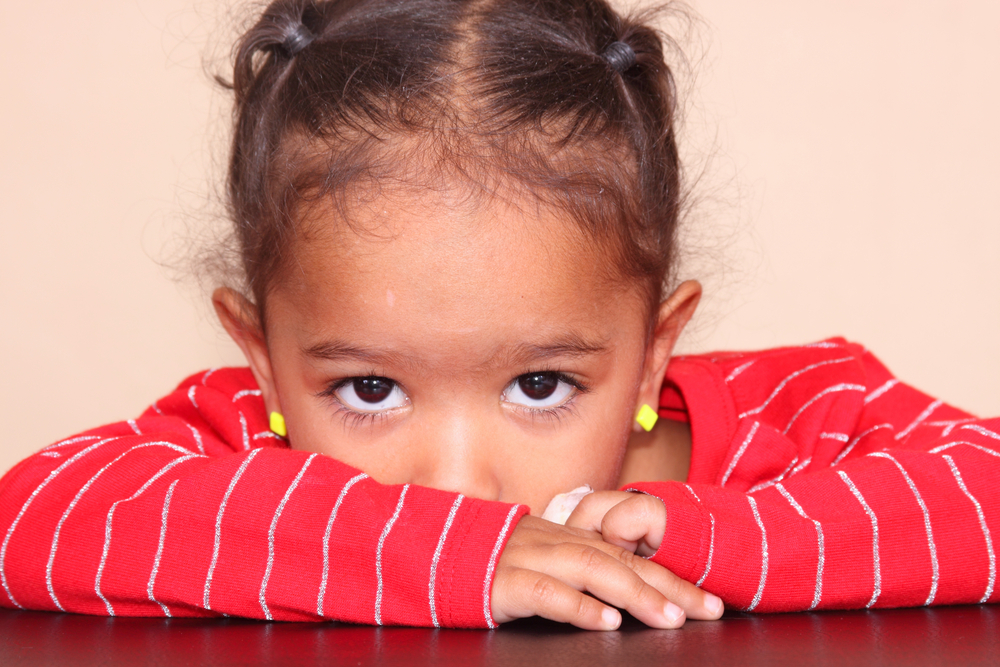How to Talk to Kids About Trump's Presidential Win

Throughout the long months of this tumultuous presidential election season, parents and caregivers have struggled with how to talk to their kids about its more volatile moments. The voting may be over, but many difficult conversations are just getting started. And uncomfortable though it may be, experts say kids will benefit from confronting tough issues directly.
Presidential campaigns aren't always indicative of presidential actions, and Americans don't know what Donald Trump will ultimately do as president. Even so, children may have heard, at home or in school, about promises made by Trump during campaign speeches and debates, including descriptions of deporting undocumented immigrants who are currently protected, banning Muslims from entering the U.S., and proposing legislation that would strip rights from LGBTQ people, women and minorities. He described Mexicans as "rapists" in one speech, and espoused committing sexual assault against women in a recording that was circulated widely in the media.
And the recognized hate group the Ku Klux Klan (KKK) has celebrated Trump's election, praising him on Twitter and even planning a Dec. 3 victory parade in North Carolina, a KKK representative told Snopes.com on Nov. 9. [Nasty Elections: 5 Times Presidential Candidates Went Low]
Some children may be too young to understand the implications of what they are hearing but are aware that family members and other adults are anxious about a Trump presidency. Others may be old enough to worry about how his proposed policies could affect them and their loved ones. How should parents speak to their children about these concerns?
Children will listen
It may be tempting for adults to downplay controversial topics in order to shield children from harsh truths about the world and how certain people behave. But kids can usually tell when adults are upset, and ignoring serious subjects — such as those that arose during this election — won't make them magically disappear, children's book author Erick Walter, who has written about bullying, told Maclean's.
"I've talked to people who are literally struggling to sleep because they're anxious. Children pick up on that," Walter said.
"You can't protect them by pretending it doesn't happen," he added.
Get the world’s most fascinating discoveries delivered straight to your inbox.
In fact, if young children suspect that their parents are distressed — regardless of the cause — they will likely hold themselves responsible unless they are told otherwise, according to Ken Yeager, an associate professor in the psychiatry department at the Ohio State University (OSU) Wexner Medical Center.
Yeager, director of OSU's Stress, Trauma and Resilience (STAR) program, told Live Science that young children tend to assume blame for everything around them. If their parents are anxious about something, kids need to hear from them that it's not their fault.
Maintaining standards
It's also important for parents to explain what may appear perplexing to children — the example of society rewarding bad behavior. In this case, what children might consider "bad behavior" by Trump could be statements about touching women's genitals without their consent, claiming that someone's race prevents them from performing their job properly, or mocking someone with disabilities. This contradicts a basic concept called the "just world belief" — the idea that good behavior is rewarded and bad behavior is punished, Yeager explained. Of course, the world is often unfair and unjust, which makes it even more important for people to hold themselves to a higher standard, Yeager said.
"There are situations where some people who behave in ways that are less than good are rewarded for it and people who behave in very good ways have bad things happen to them," Yeager said.
"It's important for parents to say to their children, 'You will see injustices around you every day, but that doesn't give you permission to act in unjust ways.' There are things that you can do, things to prevent bad things from happening — and we should do that — but sometimes, bad things still happen," he said, referring to the rewarding of "bad" behaviors. [5 Ways to Talk to Your Kids About Bullying]
"The Trump Effect"
The anti-immigrant rhetoric that is part of Trump's platform is particularly frightening to many children, according to a report released Apr. 13 by the Southern Poverty Law Center (SPLC). The report described the negative impact of the 2016 presidential election on schools in America as "The Trump Effect.".
In the report, a survey of 2,000 teachers revealed that rhetoric in the campaign "is producing an alarming level of fear and anxiety among children of color and inflaming racial and ethnic tensions in the classroom," the SPLC wrote.
And recent events in the United Kingdom suggest that such language spurs aggressive and harmful behavior toward immigrants and people of color.
After the recent "Brexit" referendum — a vote for the U.K. to leave the European Union, largely spurred by anti-immigrant propaganda — there was an uptick in hate crimes, reported by police to be five times "the usual level," according to the Independent.
In the U.S., a day after Trump was declared the president-elect, Muslims and people of color in multiple cities were targeted by taunts and harassment, the International Business Times reported. And graffiti with pro-Trump and pro-Nazi messages was found on a Philadelphia storefront on Nov. 9, according to Time.
But as president, Trump will not be making unilateral decisions about immigration policies — or, in fact, any policies — on his own. Yeager recommended that parents explain to fearful kids that our government is constructed so that no individual gets to change the way the country runs.
"The democracy we have is very complex, with a system of checks and balances," Yeager said. "Yes, there are certain aspects of it that one person can impact. But all this is in place because we don't want any one person being the dictator."
The power of words
Still, the normalization of ugly language during this election is troubling, but parents can offset that by reminding children that using demeaning or abusive words is not okay, Yeager told Live Science. He added that it was encouraging to hear Trump call for unity in a divided country during his acceptance speech, for people to start working together and that emphasizing this message to children will be an important part of moving forward.
"Life is not easy, and challenges are always present," Yeager said. "The people who are the most successful learn to live outside of their comfort zone."
Indeed, many people woke up the morning after the election outside their comfort zones, he added, ruefully. Challenges may lie ahead, but within them are possibilities to emerge stronger and wiser than before, Yeager said.
"This is an opportunity for personal and individual growth," Yeager said. "Because when you're in a place where you're less comfortable, you have a chance to change and to grow and to learn."
Original article on Live Science.

Mindy Weisberger is a science journalist and author of "Rise of the Zombie Bugs: The Surprising Science of Parasitic Mind-Control" (Hopkins Press). She formerly edited for Scholastic and was a channel editor and senior writer for Live Science. She has reported on general science, covering climate change, paleontology, biology and space. Mindy studied film at Columbia University; prior to LS, she produced, wrote and directed media for the American Museum of Natural History in NYC. Her videos about dinosaurs, astrophysics, biodiversity and evolution appear in museums and science centers worldwide, earning awards such as the CINE Golden Eagle and the Communicator Award of Excellence. Her writing has also appeared in Scientific American, The Washington Post, How It Works Magazine and CNN.


